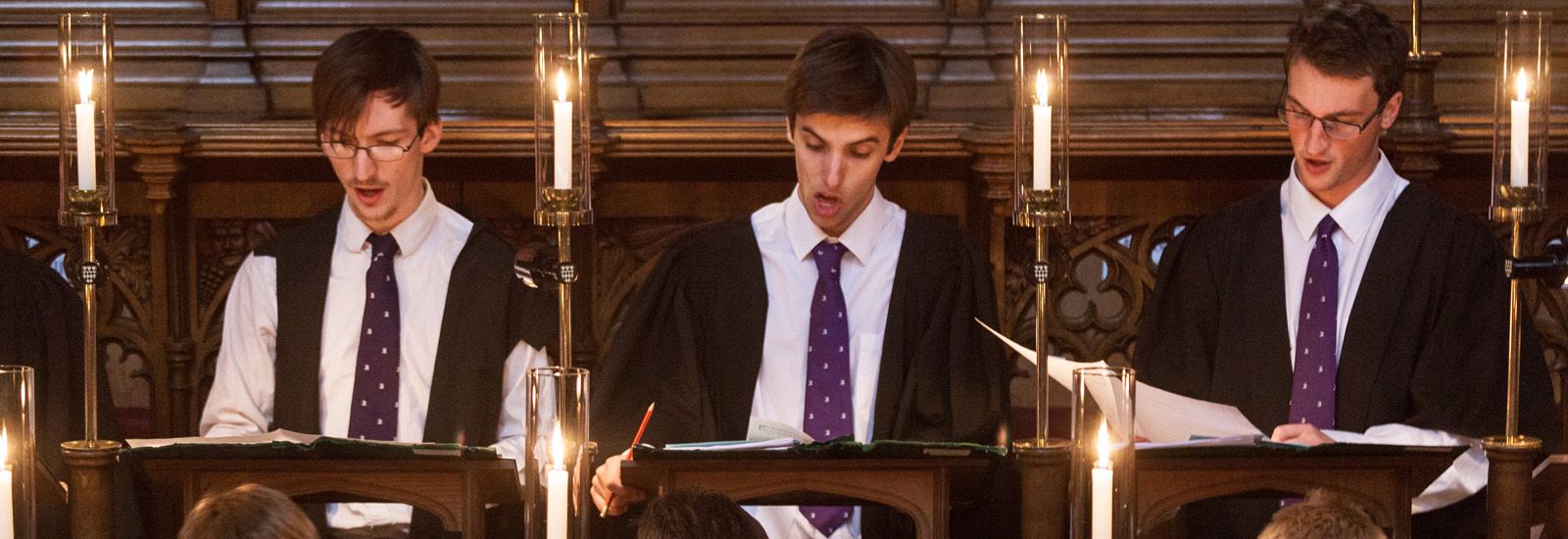
Magdalen College choir.
(Credit: Owen Rees)
Choral awards
Choral scholarships are awards given to talented singers who wish to develop their choral singing while at Oxford as a member of their college chapel choir.
There are 16 colleges in Oxford which offer choral awards through the University’s choral award scheme.
How can I find out more about choral awards?
Further information, including details of participating colleges and guidance on how to apply, can be found on the Faculty of Music website.